
Catalog Advanced Search
-
Contains 2 Component(s) Recorded On: 03/21/2025
Join Dr. Annette Vaccaro and Cindy Concannon for the first session of our 2025 Supervision Series! Eligible for 2.0 CEU hours.
Session 1 of the AATA 2025 Supervision Series
Description:What do students need? Explore the common experiences of students as novices and what they need to succeed. Discover the discrimination model’s roles of teacher, helper, listener, and consultant as well as a range of universal precautions and intervention strategies that supervisors can utilize to protect students' vulnerabilities while keeping them engaged. How does artmaking contribute to their development at this stage? By identifying the common developmental milestones of the student practitioner, the educator, and supervisor become better equipped to effectively intervene and support the student by meeting them where they are developmentally. What are the unique struggles of second-career or interdisciplinary students?
Learning Objectives:Upon completion, participants will be able to:
1. Identify the qualities of the novice art therapist
2. Differentiate between the roles of the supervisor: teacher, helper, listener and consultant
3. Define intervention strategies appropriate for use with students and new professionalsAdditional Information:
- This session is worth 2 CEUs and is ATCB, NBCC & LCATs eligible.
-
Register
- Non-member - $80
- Member - Free!
- More Information
-
Contains 4 Component(s), Includes Credits Recorded On: 03/21/2025
Join Dr. Annette Vaccaro and Cindy Concannon for the first session of our 2025 Supervision Series! Eligible for 2.0 CEU hours.
Description:
What do students need? Explore the common experiences of students as novices and what they need to succeed. Discover the discrimination model’s roles of teacher, helper, listener, and consultant as well as a range of universal precautions and intervention strategies that supervisors can utilize to protect students' vulnerabilities while keeping them engaged. How does artmaking contribute to their development at this stage? By identifying the common developmental milestones of the student practitioner, the educator, and supervisor become better equipped to effectively intervene and support the student by meeting them where they are developmentally. What are the unique struggles of second-career or interdisciplinary students?
Learning Objectives:Upon completion, participants will be able to:
1. Identify the qualities of the novice art therapist
2. Differentiate between the roles of the supervisor: teacher, helper, listener and consultant
3. Define intervention strategies appropriate for use with students and new professionalsAdditional Information:
- This session is worth 2 CEUs and is ATCB, NBCC & LCATs eligible.
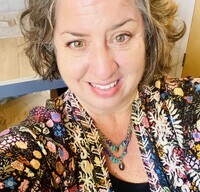
Annette Vaccaro
EdD, LPAT, LCSW, SCPsyA, LPC, ATR-BC, ACS, ATCS
Associate Professor at Caldwell University and Coordinator of their Art Therapy Programs
Dr. Annette Vaccaro, EdD, LPAT, LCSW, SCPsyA, LPC, ATR-BC, ACS, ATCS, Dr. Annette Vaccaro maintains a general practice with a specialty in clinical supervision, in Livingston, NJ. She is the Director of Academic Affairs at the Academy of Clinical and Applied Psychoanalysis (ACAP,http://www.acapnj.org/)and Director of Academic Affairs at The Boston Graduate School of Psychoanalysis (BGSP,https://nj.bgsp.edu)within the New Jersey Branch campus. Dr. Vaccaro is also an Associate Professor at Caldwell University and Coordinator of their Art Therapy Programs. She is currently preparing the Post Master's program for online participation from anywhere. Her research interest is in the professional journey of art therapists and psychotherapists.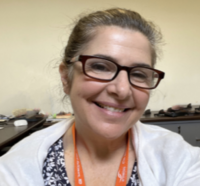
Cindy Concannon
LPAT, LPC, ATR-BC, NCC
Director of the Rolli Codey Center at Caldwell University
Cindy Concannon, LPAT, LPC, ATR-BC, NCC is the Director of the Rolli Codey Center at Caldwell University. She hosts practicum and internship students at the center that provides outreach to the community as well as on-site psychotherapy and art therapy services. Cindy trains students to work with a range of problems and diagnoses including aphasia and grief work.-
Register
- Non-member - $80
- Member - $55
- More Information
-
Contains 2 Component(s) Recorded On: 02/25/2025
Join Anna O'Brien for the first session of our 2025 Ethics Series! This version is not CE eligible
Description:
Throughout our careers, we continually face critical questions: Do we have the necessary training and skills to treat each client? Are personal biases or countertransference influencing our therapeutic relationships? When should we refer a client rather than seek consultation and engage in our own self-reflection? How do we navigate the complexities of self-care, professional limitations, and available resources—especially when clear-cut answers are rare? And how do ethical codes and legal obligations shape these decisions?
Join us for a dynamic two-hour workshop on the essential skills of ethical clinical practice! Whether you're an experienced clinician or just beginning your journey, this session provides valuable insights into maintaining professional boundaries and making client-centered decisions—whether during consultation calls, in treatment, or when supporting after-care referrals. You'll walk away with a deeper understanding of the referral decision-making process and a practical decision-making flowchart to guide you when these challenges arise.
Learning Objectives:Upon completion, participants will be able to:
1. Distinguish between situational countertransference, discriminatory feelings, scope of training, and level of care needs that may impact their clinical work, and understand how this distinction relates to referral ethics.
2. Create a concrete plan outlining specific strategies for maintaining professional scope boundaries, preventing burnout, and prioritizing the client's best interest when assessing for and making referrals.
3. Demonstrate the ability to apply ethical decision-making frameworks by correctly analyzing at least 2 complex clinical scenarios.Additional Information:
- The Student Version is not CE eligible.

Anna O'Brien
LPC, ATR-BC
Be Well Private Practice Communities
Anna O'Brien, LPC, ATR-BC is a therapist in private practice and co-founder of Be Well Private Practice Communities, hosting 60 therapists across two Philadelphia locations. She also co-founded Theravera, a grassroots, therapist-led company dedicated to ethical mental health care navigation through technology.
Through Theravera, Anna developed Consult List, a free platform facilitating ethical referral practices among independent therapists, while remaining independently funded to ensure decisions align with clinical excellence and therapeutic values. Through both ventures, she demonstrates her commitment to fostering professional connections and upholding ethical standards, providing free technological support for mental health advocacy initiatives.
As a clinician and leader, Anna advocates for sustainable therapy practices, working to protect the integrity of mental health care by keeping it in the hands of dedicated professionals.-
Register
- Member - Free!
- More Information
-
Contains 4 Component(s), Includes Credits Recorded On: 02/25/2025
Join Anna O'Brien for the first session of our 2025 Ethics Series! Eligible for 2.0 CEU hours.
Description:
Throughout our careers, we continually face critical questions: Do we have the necessary training and skills to treat each client? Are personal biases or countertransference influencing our therapeutic relationships? When should we refer a client rather than seek consultation and engage in our own self-reflection? How do we navigate the complexities of self-care, professional limitations, and available resources—especially when clear-cut answers are rare? And how do ethical codes and legal obligations shape these decisions?
Join us for a dynamic two-hour workshop on the essential skills of ethical clinical practice! Whether you're an experienced clinician or just beginning your journey, this session provides valuable insights into maintaining professional boundaries and making client-centered decisions—whether during consultation calls, in treatment, or when supporting after-care referrals. You'll walk away with a deeper understanding of the referral decision-making process and a practical decision-making flowchart to guide you when these challenges arise.
Learning Objectives:Upon completion, participants will be able to:
1. Distinguish between situational countertransference, discriminatory feelings, scope of training, and level of care needs that may impact their clinical work, and understand how this distinction relates to referral ethics.
2. Create a concrete plan outlining specific strategies for maintaining professional scope boundaries, preventing burnout, and prioritizing the client's best interest when assessing for and making referrals.
3. Demonstrate the ability to apply ethical decision-making frameworks by correctly analyzing at least 2 complex clinical scenarios.Additional Information:
- This session is worth 2 CEUs and is ATCB, NBCC & LCATs eligible.

Anna O'Brien
LPC, ATR-BC
Be Well Private Practice Communities
Anna O'Brien, LPC, ATR-BC is a therapist in private practice and co-founder of Be Well Private Practice Communities, hosting 60 therapists across two Philadelphia locations. She also co-founded Theravera, a grassroots, therapist-led company dedicated to ethical mental health care navigation through technology.
Through Theravera, Anna developed Consult List, a free platform facilitating ethical referral practices among independent therapists, while remaining independently funded to ensure decisions align with clinical excellence and therapeutic values. Through both ventures, she demonstrates her commitment to fostering professional connections and upholding ethical standards, providing free technological support for mental health advocacy initiatives.
As a clinician and leader, Anna advocates for sustainable therapy practices, working to protect the integrity of mental health care by keeping it in the hands of dedicated professionals.-
Register
- Non-member - $80
- Member - $55
- More Information
-
Contains 4 Component(s), Includes Credits Recorded On: 01/28/2025
Join Erica Curtis, Nadia Paredes & Ping Ho for a session on Preventive Art Therapy! Eligible for 2.0 CEU hours.
Description:
Inclusive mental health requires non-stigmatizing, scalable, resilience-building practices. Art therapy can fill this role. This workshop will dive deep into the ethical intersection of art therapy and public health, offering practical ways art therapy theory and tools can integrate into any clinical or community setting for wide-reaching and sustainable change.
Learning Objectives:Participants will be able to:
- Identify 3 ways art therapy can uniquely offset the negative impact of adverse childhood events (ACE’s) in diverse settings.
- Describe 2 ethical issues and resolutions when introducing clinical theories and tools into non-clinical settings like schools, homes, or communities.
- Describe 3 art therapy interventions that can be ethically integrated into any clinical or community setting for resiliency-building.
Additional Information:
- This session is worth 2 CEUs and is ATCB, NBCC & LCATs eligible.

Erica Curtis
LMFT, ATR-BC
Erica Curtis is a board-certified art therapist, licensed marriage and family therapist, award-winning author, and sought-after speaker. With a private practice in San Juan Capistrano, Erica is also a core instructor for the Arts & Healing Initiative and Admissions Consultant for Loyola Marymount University’s Marriage and Family Therapy department. A trusted expert, she has been featured in over 100 media outlets, including PBS, USA Today, and Cosmo, and serves as a media ambassador for the American Art Therapy Association.
Erica’s books, The Innovative Parent, Art Therapy Activities for Kids, and Working with Anger Creatively, reflect her expertise in creative wellness, parenting, and mental health. She specializes in autism, ADHD, learning differences, and misophonia and provides consultation, supervision, and program development for organizations like The Getty Center and L’Oréal. A past president of the Southern California Art Therapy Association, Erica has received multiple honors for her contributions to the field.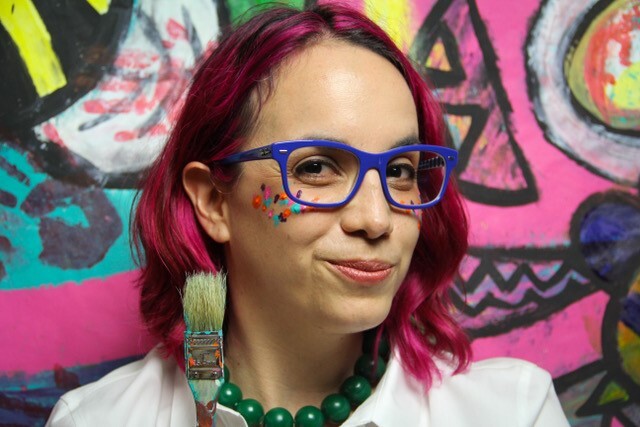
Nadia F. Paredes
MA, LMFT, ATR
AATA President
Through her expressive arts programs, Nadia Paredes helps people connect with their inner creativity and empower their minds and souls. Nadia founded Nadia Paredes - Creative Studio, a bilingual resource for empowering, healing, and artistic inspiration. With expertise and training as an Art Therapist, Intuition Painting Facilitator, and Licensed Martial and Family Therapist, she creates programs for transformation, creativity, and art-making as a mindfulness practice. Nadia also works in corporate wellness as a speaker and workshop facilitator and is an Adjunct Professor and Art Therapy Supervisor at Loyola Marymount University.
Ping Ho
MA, MPH
Ping spearheaded the development of the Certificate Program in Social Emotional Arts (SEA) and the SEA Toolkit: Supportive Art, Movement, Music & Writing for Individuals or Groups in Any Setting. In addition, she co-developed and served as principal investigator for the evidence-based program, Beat the Odds®: Social and Emotional Skill Building Delivered in a Framework of Drumming.
Ping is associate editor for the Creative Arts Therapies section of the Journal of Integrative and Complementary Medicine, and she is co-author of the 2019 National Parenting Products Award-winning book, The Innovative Parent: Raising Connected, Happy, Successful Kids through Art (Ohio University/Swallow Press). Ping was the founding administrator of the UCLA Collaborative Centers for Integrative Medicine (now the UCLA Integrative Medicine Collaborative) and UCLA Cousins Center for Psychoneuroimmunology, which led to the privilege of writing for Norman Cousins and co-writing the professional autobiography of George F. Solomon, M.D., founder of the field.
She has a BA in psychology with honors from Stanford—where she was appointed to initiate the still-thriving Health Improvement Program for faculty and staff, an MA in counseling psychology with a specialization in exercise physiology from the University of California, Santa Barbara, and an MPH in community health sciences from UCLA Fielding School of Public Health.-
Register
- Non-member - $82
- Member - $52
- More Information
-
Contains 15 Product(s)
Content consists entirely of unique sessions not offered at the AATA2024 in-person conference in Pittsburgh, PA. => Earn 18.5 Continuing Education Credits
AATA 2024 Virtual Conference
Session 1: Arts & Health Continuum: A New Perspective (PP00)
Recent cultural shifts toward greater mental health awareness have brought essential attention to the psychological needs of people of all ages and backgrounds. At the same time, the healing potential of art, creativity, and art-making is now widely recognized as vital to enhancing overall health and well-being. From the White House to the World Health Organization, policymakers are advocating for arts integration within healthcare, broadening its impact beyond mental health to holistic wellness.
In this plenary session, expert panelists will discuss the emergence of arts as a transformative force in health and well-being. With Federal and local governments, healthcare systems, and cultural organizations expanding arts and wellness programs, panelists will also explore how we can leverage the arts to meet the mental health needs of diverse communities more effectively.
- Nadia Paredes
- Dr. Nisha Sajnani
- Dr. Marygrace Berberian
- Yazmany Arboleda
Session 2: Adolescents: Comparing 3D Virtual Reality and Traditional 2D Art-Making Experiences (TI145)
The presenter reveals insights into adolescents' artistic exploration through virtual reality (VR) art-making. Participants depicted safe spaces with traditional art materials, later recreated them in VR. Thematic analysis unveiled themes: diminished confidence, empowerment, multisensory engagement, and shared experiences of gender-switching. Virtual reality empowers non-traditional expression of thoughts, fostering participation and creativity.
- Lidice Cohen
Session 3: Building Capacity Back Home: Art Therapy Post-Graduate Certificate Program Based in Istanbul (NY-ES217)
This presentation describes the development of an art therapy training program in Turkey by six art therapists trained in the US during the 2000s. Returning in the 2010s, they crafted a curriculum bridging US and Turkish academic and social norms, showcasing capacity building by international therapists in their home country.
- Bihter Yasemin Adali
- Seyma Cavusoglu
- Aslıhan Özcan Morey
- Asli Arslanbek Evci
Session 4: Art Therapy Efficacy Study For Indian Women With Chronic Mental Health Conditions (DEI108)
The presentation will discuss an original pilot research using clay-pottery based art therapy intervention with residents of an assisted-living community facility for women with chronic mental health conditions in India. A structured Art therapy intervention module developed for the research will be discussed in detail.
- Saoni Banerjee
Session 5: Sensory-based Relational Art Therapy Approach: Supporting the emotional needs of autistic children (N-AU10)
I will outline the Sensory-based Relational Art Therapy Approach and explain the rationale behind its seven themes. The exploration of these themes will be done through case vignettes, illustrating their practical implications."
- Huma Durrani
Session 6: Papermaking as Art Therapy to Address Trauma and Loss (N/NY-TR82)
This panel will explore hand papermaking as a form of art therapy from the experiences, practice, and reflections of four art therapists. Attendees will learn about papermaking materials, methods, and applications to implement this media to specifically address trauma, grief, and loss, as well as empower resilience and recovery.
- Gretchen Miller
- Meredith McMackin
- Annie McFarland
Session 7: Charting the Future of Art Therapy Research: Implementation for Advancement and Sustainability (NY-RE133)
This presentation describes the outcome and implementation of a multi-phasic research project the goal of which was to create an art therapy research strategic plan. Projects such as Teaching Research and The Metaphor Project are discussed as exemplars of the implementation of the five broad art therapy research strategic goals.
- Nancy Gerber
- Theresa Van Lith
- Madeline Centracchio
Session 8: Cult Recovery, Complex Trauma, and Art Therapy: A Comprehensive Approach (N/NY-MS47)
This presentation delves into the intersection of cult recovery, complex trauma, and the innovative application of art therapy as a transformative modality for survivors. Coercive control, a subtle yet insidious form of abuse, often leaves survivors grappling with complex trauma, a multifaceted and enduring aftermath that challenges traditional therapeutic approaches.
- Natalee Bigger Stockdale
- Ashlen Hilliard
- Erin Falconer
Session 9: HeART in India: Indian Perspectives on Art and Healing, Through Art (N/NY-MP158)
The HeART in India panel will explore: cultural aspects of art therapy, art, and healing in India, the ongoing shifts in awareness and acceptance of art therapy as a mental health profession/field, and a few accessible therapeutic art techniques that might help increase accessibility of art therapy in India.
- Alison Kearley
- Vishakha Rao
- Megha Ananth
Session 10: Decolonizing Art Therapy from Within: Disarming with your Inner Colonizer (MP114)
This presentation will discuss the universal nature of art therapy, the need for constant self-reflexivity, and the benefits of cultural adaptation in practice and research. It will emphasize the importance of a decolonized and socially just stance, including all voices from different locations. The role of reflexivity and self-reflexivity in art therapy is highlighted, along with the significance of understanding the inter-relationality present in all aspects of life. We will also explore how creativity can be used as a form of resistance towards meaningful social change. Finally, it calls for acknowledging our contribution to sustaining inequalities and working towards liberation and social justice in exploring our inner colonizer.
- Natalia Gómez-Carlier
Session 11: Silhouettes That Unveil: A Revealing Insight Into Sexual Abuse Survivors In Singapore (N-TR67)
The presentation will highlight the consistent patterns observed in female sexual abuse survivors' artwork during art therapy sessions in Singapore. Some sexual abuse survivors tend to create similar metaphors that aid in identification and tailored interventions. This presentation will be especially useful for clinicians working with clients with complex trauma.
- Buvenasvari Pragasam (Buvi)
Session 12: Psychedelics and Art Therapy: Bridging Two Worlds (N/NY-TA31)
This panel will explore the historical use of psychedelics in traditional and Western practices, including the use of psychedelics in mental health treatment. Panelists will review the ethical and legal implications of incorporating this work into clinical practice and present their experience using art therapy at different stages of psychedelic therapy.
- Rebecca Wilkinson
- Amelia Laver
- Charmaine Husum
Session 13: Doctoral Education: Is it for Me? (N/NY-ES81)
This panel of doctoral-level art therapy students and educators will provide an opportunity to learn more about the intended values and goals of doctoral education, especially as related to students of diverse backgrounds, races, gender orientations, and perspectives facing implicit and explicit institutional hierarchies.
- Danielle Chen
- Nancy Gerber
- Lisa Hinz
Session 14: Numbers Tell the Story: Teaching, Learning, and Applying Quantitative Research Methods (NY-RE186)
Numbers tell the story. Using quantitative research methods, students and practitioners learn ways to find the story in numbers. What are mental health professionals' attitudes towards art therapy? Does this treatment method cause a change? Art therapy educators learn innovative ways to experientially teach research.
- Patricia St John
Session 15: Transformative Art Therapy: Self-Discovery in Women's Correctional Facilities with Expressive Post (TR64)
This presentation explores the impact of the Expressive Post impact in a women's prison, utilizing relational art therapy to foster self-discovery and empowerment. It highlights innovative techniques and transformative outcomes, emphasizing the role of art in facilitating change and connection within the challenging carceral environment.
- Theresa Van Lith
- Hayley Arjona
-
Register
- Non-member - $375
- Member - $295
- More Information
-
Contains 4 Component(s), Includes Credits Recorded On: 10/27/2024
AATA2024: Virtual Conference Session (Day 2)
Description
This presentation explores the impact of the Expressive Post impact in a women's prison, utilizing relational art therapy to foster self-discovery and empowerment. It highlights innovative techniques and transformative outcomes, emphasizing the role of art in facilitating change and connection within the challenging carceral environment.
Learning ObjectivesBy participating in this session, attendees will:
- Understand the principles and application of relational art therapy in a correctional setting, particularly focusing on the development and impact of the Expressive Post program.
- Learn about innovative response-based art therapy techniques and their role in fostering deep therapeutic connections and promoting self-discovery and empowerment among incarcerated women.
- Explore the transformative potential of art therapy in challenging environments, including strategies for implementation, participant engagement, and the evaluation of therapeutic outcomes in a women's prison context.

Dr. Theresa Van Lith
Associate Professor and Clinical Coordinator
Florida State University
Theresa Van Lith is currently the Course Coordinator for the Master and Graduate Diploma of Art Therapy programs at La Trobe University. Previously, she joined Florida State University's faculty, focusing on coordinating clinical placements and engaging in practical research in art therapy and mental health. Her research primarily centers on developing and implementing art therapy studies aimed at practical improvements in quality of life, assessing intervention effectiveness, and determining best practices. A significant part of her work includes the ongoing development and implementation of a practical art therapy research strategy, with a future focus on practical techniques for reducing anxiety, and stress, and improving overall mental outlook through mindfulness and art-based practices.She actively contributes to the American Art Therapy Association, serving as Associate Editor for its academic journal. She is also a Board Member of the Australian, New Zealand, and Asian Creative Arts Therapy Association (ANZACATA). Her practical contributions to the field have been acknowledged with several awards, including the American Art Therapy Association Seed Grant (2021), the National Endowment for the Arts Research Award (2020), and the Department of Art Education Faculty Teaching Award (2019).
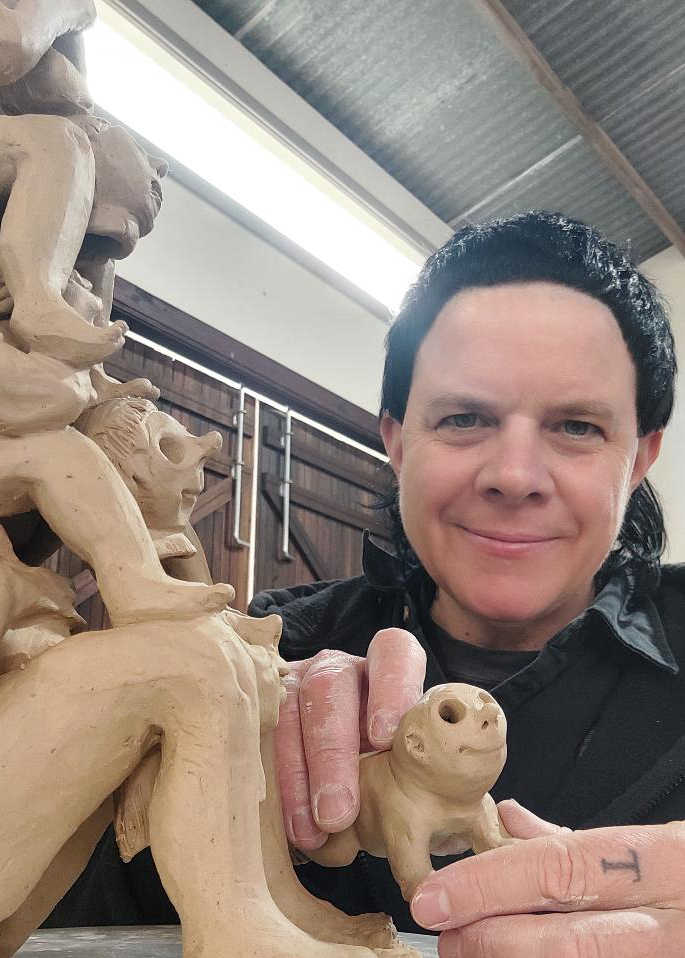
Hayley Arjona
MAT, MFA, AThR
Hayley Arjona (MAT MFA AThR) is an Australian contemporary artist and registered art therapist dedicated to studio-based practice and social justice work. Since 2020, she has provided art therapy in the women’s prison system and family violence counseling programs. Hayley has adopted innovative ways of harnessing the transformative potential of artmaking for profound change. She designed the Expressive Post program, which to date, has engaged over 85 women in prison. Currently a guest lecturer in the Master of Art Therapy course at La Trobe University in Melbourne, Hayley teaches subjects regarding art therapy with adults and the effective application of diverse materials and processes.-
Register
- Non-member - $45
- Member - $27
- More Information
-
Contains 4 Component(s), Includes Credits Recorded On: 10/27/2024
AATA2024: Virtual Conference Session (Day 2)
Description
Numbers tell the story. Using quantitative research methods, students and practitioners learn ways to find the story in numbers. What are mental health professionals' attitudes towards art therapy? Does this treatment method cause a change? Art therapy educators learn innovative ways to experientially teach research.
Learning ObjectivesBy participating in this session, attendees will be able to:
- Identify five quantitative research methods used in art therapy research.
- Describe five quantitative research based teaching and learning activities with applications in clinical and other art therapy settings.
- Propose one quantitatively based research study that can be conducted at the attendee's art therapy workplace.
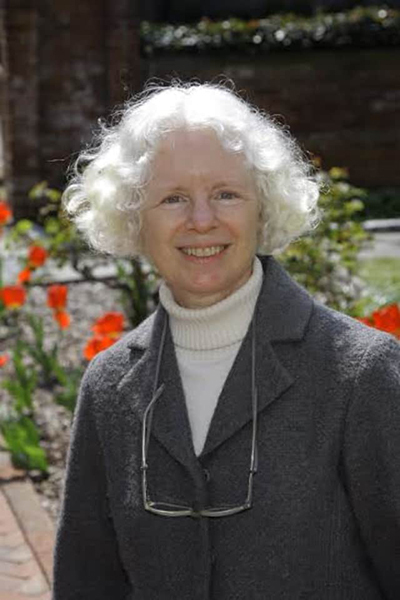
Patricia St John
MA, EdD, ATR-BC, LCAT
Patricia (Pat) is a Registered, Board-Certified Art Therapist, licensed in New York State. For more than 30 years she directed the MS in Art Therapy program at The College of New Rochelle, New Rochelle, NY, where she developed the research component of the program, among many other initiatives. The college awarded her the title of Professor Emerita. Soon after the college closed in August 2019, due to financial difficulties, she began teaching undergraduate and graduate art therapy at Springfield College, Springfield, MA. She teaches various courses including research. She mentored over 300 master's thesis studies. As an active member of the AATA for the past 30 years, she has served on the Education & Training Board and co-chaired the Task Force for the preparation of Education Standards & Guidelines for our accreditation group, CAAHEP. She is currently a member and previous chair of the Education Committee and Research Committee, previously Associate Editor of the Journal, and previously elected to the AATA Board of Directors. She is a recipient of the AATA Research Award and the Distinguished Service Award. She has presented many papers, workshops, and panels at AATA Annual Conferences, as well as published papers in the Journal. Her mixed media artwork has been accepted into juried exhibits across the USA and internationally.-
Register
- Non-member - $45
- Member - $27
- More Information
-
Contains 4 Component(s), Includes Credits Recorded On: 10/27/2024
AATA2024: Virtual Conference Session (Day 2)
Description
This panel of doctoral-level art therapy students and educators will provide an opportunity to learn more about the intended values and goals of doctoral education, especially as related to students of diverse backgrounds, races, gender orientations, and perspectives facing implicit and explicit institutional hierarchies.
Learning ObjectivesBy participating in this session, attendees will be able to:
- List two objectives of doctoral-level education in the United States.
- Describe two goals of conducting doctoral-level research.
- Explain two ways of navigating the challenges of the doctoral chairperson/candidate relationship when different racial identities or other diversity issues compounded the existing power differential.
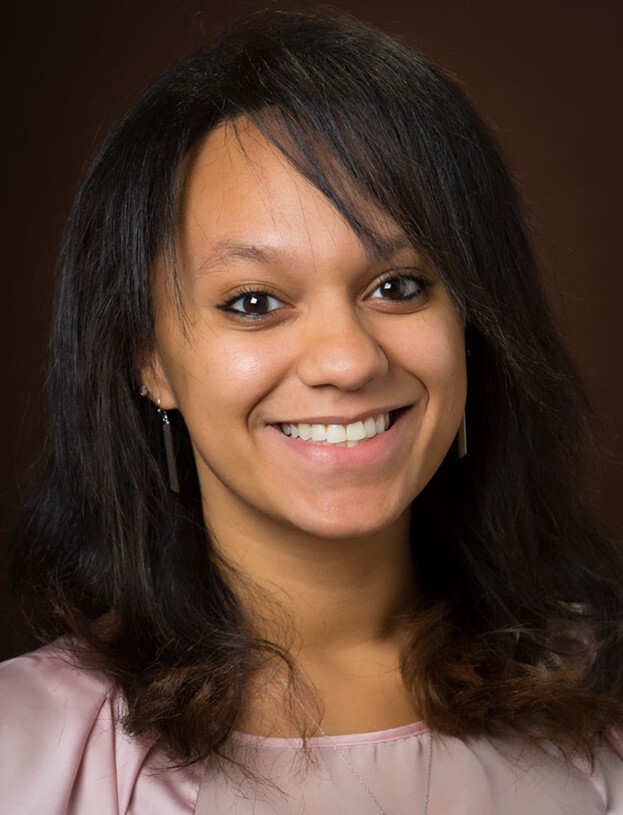
Danielle Chen
Ph.D., LMFT, RPT, ATR
Owner, The Art of Therapy, LLC
Dr. Danielle Tidwell Chen is a licensed Marriage and Family Therapist, Registered Art Therapist, and Registered Play Therapist with over a decade of experience in art therapy and family therapy. She holds a Ph.D. in Art Education with a concentration in Art Therapy Theory and Practice from Florida State University, where she also earned her M.S. in Art Therapy. In addition, she obtained a Master's in Family Therapy from Mercer University and a B.S. in Psychology with a concentration in Studio Art from Georgia State University.
As an AAMFT Clinical Fellow and an Approved Supervisor in Training, Danielle’s research focuses on the intersections of multiracial and multicultural identities. Her work explores how art therapy and systemic theories can help individuals navigate complex identities, particularly through the lens of cultural humility and social justice. She is passionate about using response art as a tool for therapists to engage in self-reflection and personal development. Danielle has been published in the Art Therapy Journal, contributing to important discussions on identity, social justice, and therapeutic practice. Her professional affiliations include the Association for Play Therapy (APT), the American Art Therapy Association (AATA), and the American Association for Marriage and Family Therapy (AAMFT).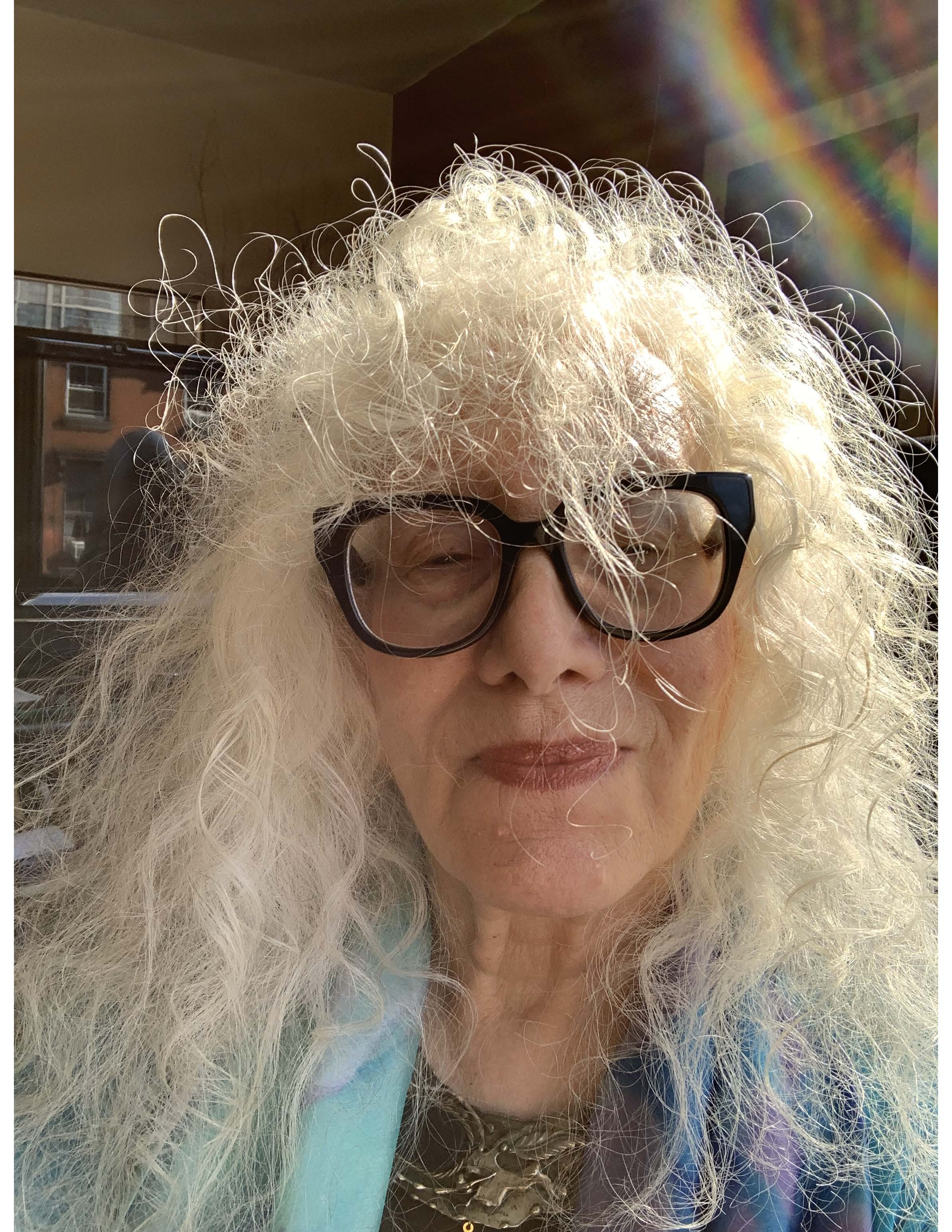
Dr. Nancy Gerber
PhD, ATR-BC
Florida State University
Nancy Gerber, Ph.D, ATR-BC is Associate Clinical Professor Emerita and founding and former director of the Ph.D Program in Creative Arts Therapies at Drexel University. She currently is Teaching Faculty at Florida State University. Previously she was the Director of the Graduate Art Therapy Program at Drexel University. Dr. Gerber has presented and published on doctoral education for art therapists, mixed methods research, aesthetic intersubjective worldview in research and practice, arts-based research, and the mechanisms of change in the creative arts therapies. She was a former vice-chair of the IRB and currently chairs the Doctoral Education Subcommittee for the American Art Therapy Association. She co-facilitates the Arts-Based Research SIG at the International Congress of Qualitative Research. Dr. Gerber has developed the Arts-Based Research Global Consortium to advance socially responsible arts-based research. Dr. Gerber was the first recipient of the first Distinguished Educator’s Award from the American Art Therapy Association.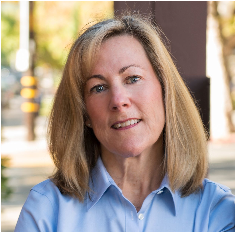
Dr. Lisa D. Hinz
Ph.D., ATR-BC
Lisa D. Hinz, Ph.D., ATR-BC is a licensed clinical psychologist and board-certified art therapist. She is an associate professor and director of the Art Therapy Psychology Doctoral Program at the Dominican University of California. Dr. Hinz is the author of many professional publications and three books on art therapy. The second edition of her book, Expressive Therapies Continuum: A Framework for Using Art in Therapy was released in January 2020 and builds upon her interest in materials and methods in art therapy. Dr. Hinz specializes in the treatment of eating issues, substance abuse, and lifestyle medicine; she maintains a private practice in St. Helena, California.-
Register
- Non-member - $60
- Member - $38
- More Information
-
Contains 4 Component(s), Includes Credits Recorded On: 10/27/2024
AATA2024: Virtual Conference Session (Day 2)
Description
This panel will explore the historical use of psychedelics in traditional and Western practices, including the use of psychedelics in mental health treatment. Panelists will review ethical and legal implications of incorporating this work into clinical practice and present their experience using art therapy at different stages of psychedelics therapy.
Learning ObjectivesBy participating in this session, attendees will be able to:
- Identify 3 benefits and 3 risks of using psychedelics in therapy.
- Differentiate among psychedelic preparation, psychedelic administration and psychedelic integration.
- List 3 applications for working with client using psychedelics.

Rebecca Wilkinson
LPC, LCPAT, ATR-BC, ITR-TT®
Co-founder, Creative Wellbeing Workshops, LLC
Rebecca is co-founder of Creative Wellbeing Workshops which provides therapy, supervision, consultation, and training to help individuals and organizations manage stress, reduce burnout, and improve wellbeing. Creative Wellbeing Workshops is a National Board of Certified Counselors (NBCC) approved continuing education provider in Positive Ethics, Creativity, Art Therapy, and Positive Psychology. CWW has offices in DC and Tucson, AZ. Rebecca is a Licensed Professional Counselor, a Licensed, Registered, and Board Certified Art Therapist, and a Certified Trauma Therapist in the Instinctual Trauma Response ®. She completed the 250 hr training as a Certified Psychedelic Therapist with the Integrative Psychiatric Institute (IPI) and Multidisciplinary Association for Psychedelic Studies (MAPS/Lykos). Rebecca serves as adjunct faculty at the George Washington University Graduate Art Therapy Program, teaching Positive Psychology and Art Therapy, Art Therapy and Mental Illness, and Supervision.
Rebecca also served as a Wellness Specialist at the internationally renowned Miraval Spa in Arizona and a regularly featured creativity facilitator at the Smith Center for Healing and the Arts for clients affected by life-threatening illnesses and providers working with them. She was a regular trainer for Business Health Services providing professional development and training to private corporations and government agencies in the DMV area and she coordinated the Washington Adventist Hospital Expressive Therapies Department. She was awarded Clinician of the Year by the American Art Therapy Association (AATA) for outstanding contributions to art therapy for adults from diverse cultural backgrounds, her skills as a therapist, and for serving as a model of excellence in service to others. She was instrumental in developing AATA's Institute for Continuing Education and helped the Potomac Art Therapy Association and Smith Center gain NBCC provider status. She served as President of the Arizona Art Therapy Association. Rebecca's focus has been on crisis stabilization and it is through this work both personally and professionally that she has developed an appreciation for the power of the human spirit to prevail even in the darkest moments.
Specialties: trauma resolution, art therapy, psychedelic facilitation and integration, improving well-being, creativity, end-of-life issues, crisis stabilization, stress management, burnout prevention, substance abuse, codependency, affect regulation, group presentation, positive psychology, individual psychotherapy, ethics.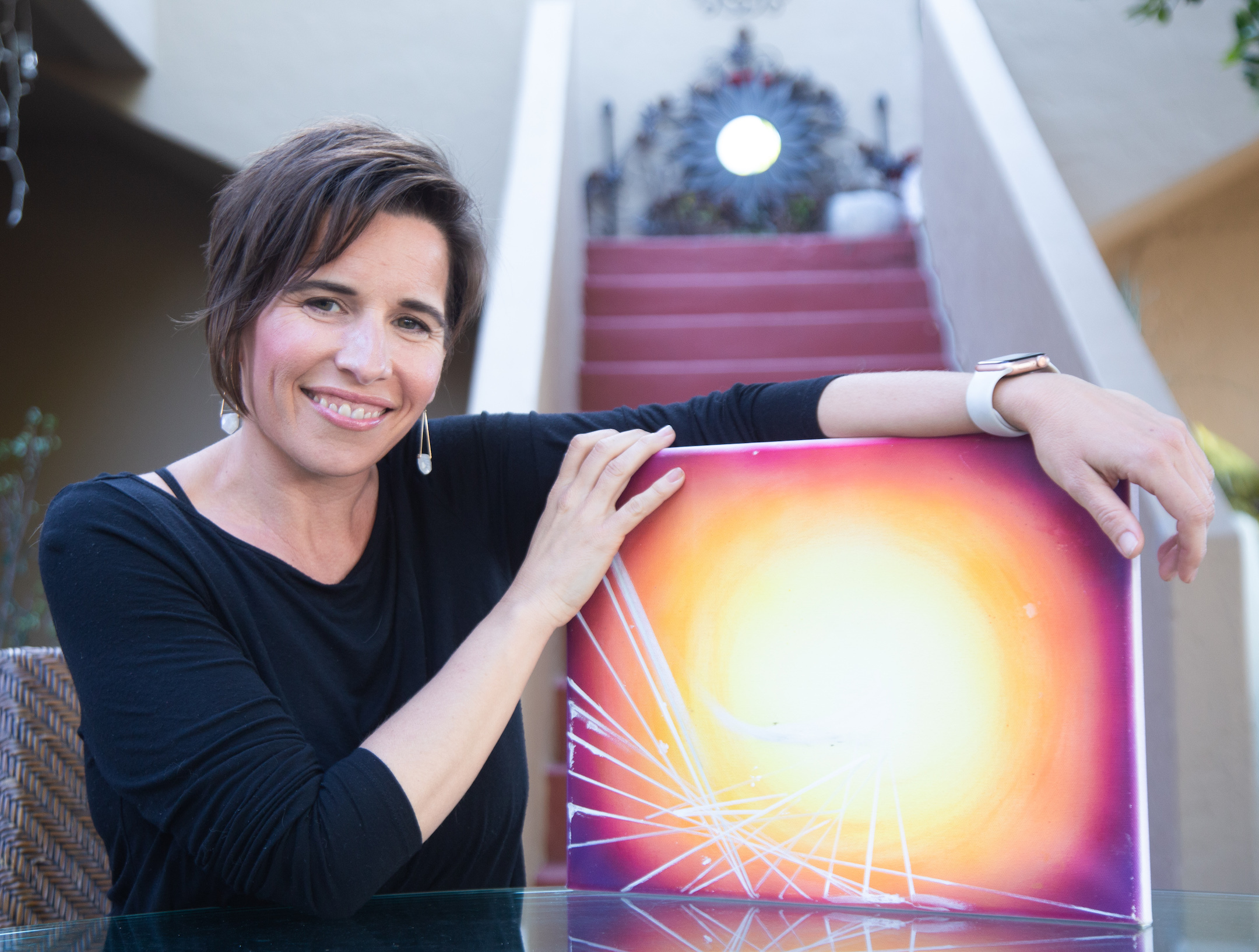
Amelia Laver
LLb(Hons) Qualified Attorney (UK)
Amelia Laver, originally from the UK is a qualified Attorney, who later became inspired to pursue a career as an Expressive Arts Therapist, after being in a workshop with acclaimed Art Therapist, Rebecca Wilkinson. She has been working with psychedelic medicine for 3 years, facilitating 1:1 sessions with MDMA and Psilocybin mushrooms, holding workshops on micro-dosing, and utilizing Expressive Arts Therapy tools that she gained during her first year's training and internship whilst enrolled in the Masters of Expressive Arts Program. Since then she has pivoted from that program to pursue licensure to work with psychedelic medicine.
Charmaine Husum
RCAT, DKATI, RTC, CT
Charmaine Husum RCAT, DKATI, RTC, CT is a Professional Artist, Registered Canadian Art Therapist, Registered Therapeutic Counsellor, and Kundalini Yoga & Meditation teacher. Within her private Somatic Art Therapy Practice, Centre of the HeArt she supports clients both in person and online to move through difficult experiences from trauma, depression, anxiety, suicidality, addiction, and other mental health symptoms towards a path of transcendence and healing.
Helping people find a personalized route to healing using trauma-informed art therapy, clinical psychotherapeutic approaches, transpersonal psychology, mindfulness, yoga, and somatic counseling is the foundation of her work. Believing that true and lasting healing lives within every individual; the work she does focuses on one’s inner strength, power, and innate capacity to thrive beyond difficult experiences in life.
For the past 10 years, she has also been working to help others prepare for and Integrate the powerful experiences that take place during Altered States of Consciousness and Psychedelic Journeys. To support this, she teaches courses and workshops both online and in person around the world using Art Therapy, Dreamwork, Somatic Processes, Kundalini Meditation, and Yoga that follow the trauma-informed protocols outlined by Bessel van der Kolk and Judith Herman. They can be found at www.courses.centreoftheheart.com.-
Register
- Non-member - $60
- Member - $38
- More Information









